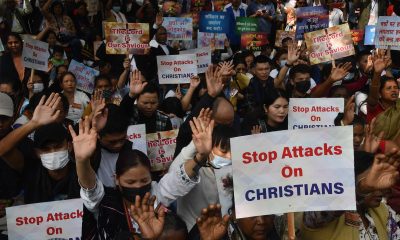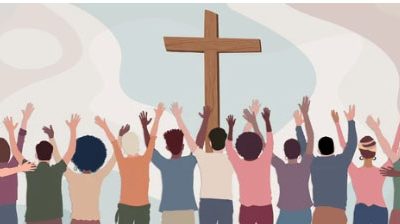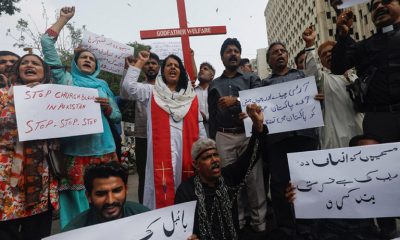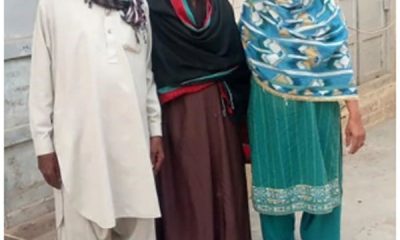world news
‘Ever-Present’ Persecution in Bangladesh and Sri Lanka
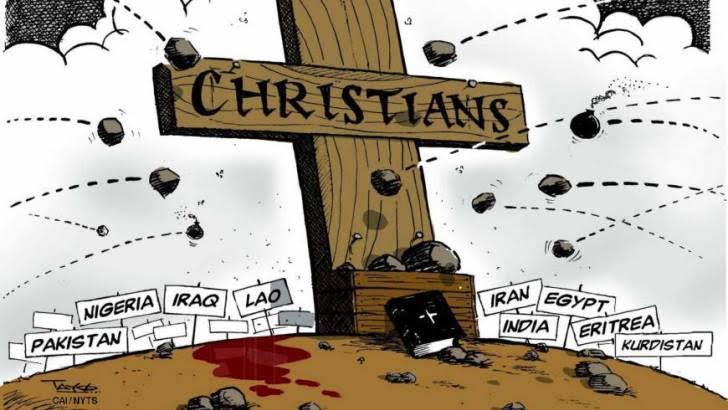
Washington — In countries like Myanmar and Nigeria, acts of persecution against Christians are more likely to make news reports because of their extreme violence. But in many other locations, persecution typically takes on a more subtle form. It likely won’t make any media outlet and might not have any documentation at all. But it’s still an ever-present issue that diminishes the quality of life for many Christians.
One place where such persecution occurs is Bangladesh, a South Asian nation with an overall population of 170 million, where over 90% of the people are Muslim and most of the remaining portion are Hindu.
Thomas (real name withheld to protect identity), a Christian in Bangladesh, says that many people “express their desire for conversion” to Christianity, but they don’t follow through with it due to “threats of killing and persecution.”
Many children in Bangladesh “grow up with a nasty mentality to hate other faiths,” says Thomas. In the villages, these children often target the Christian families “to steal and destroy farms and gardens.” He adds that when Christians protest such behavior, then things become more aggressive.
In the cities, says Thomas, anti-Christian sentiment can surface through harassment from non-Christian employees or having non-Christian employees refuse to cooperate with the Christian employee. The Christian employee might also get stuck with job duties on a Sunday, so that they might have to choose between attending church or keeping their job.
Thomas isn’t sure exactly what percent of Bangladeshi Muslims support acts of persecution against Christians. He says, though, that it doesn’t take much to spoil the “full bucket of milk.”
He gives the example in which you might have “just one person doing anti-Christian activities in a large Muslim family.” Maybe the other family members “silently support it,” or maybe they themselves “are also afraid” of their hostile family member. It can be very difficult for an outsider to determine which case is the reality. But either way, nobody discourages the person from acting on his hostility.
Thomas says that “anti-Christian mentality is present throughout” the country among Muslims who are either uneducated or who study in fundamentalist madrassas which teach that Bengali is not a Muslim language, and that Islam is the only legitimate religion. “It’s enough to make a soft brain child into a violent fanatic,” says Thomas.
Rates of Christianity are much higher among indigenous ethnic minorities in Bangladesh. Thomas says these indigenous Christians are typically “very humble and hospitable,” especially to a wandering laborer “who comes very helplessly to work in the area.”
Thomas shares a scenario in which a Muslim might come to a Christian household to do agricultural work. The Christian family might give the Muslim some land to live on. Then, the Muslim “calls other relatives and builds a mosque with bamboo.”
At this point, the guest might start to act like he’s the owner. Thomas says then “they become a threat to local people … they take away crops, steal fruits and vegetables, make a chaos without any cause.” At this point, the host family will have “lost their inner silence,” he adds.
As for legal recourse, Thomas says how, “Without a complaint, the police have no responsibilities. And if you go to complain, you have to pay an official fee with a big bundle.” Then the police want evidence. “How do you show bullying and tricking?” asks Thomas.
People tend to view filing a criminal complaint as a major source of harassment. As Thomas explains, “If the police call you to the station, you lose your daily wage and maybe even your job.” And “if the police come to your home, you need to make them happy with some external hospitality, otherwise the report will be against you.”
“Sometimes, the village chief or higher authority supports people against the Christians,” says Randall (real name withheld to protect identity), a pastor from northern Bangladesh. He adds that Christian converts from Muslim backgrounds have a slim chance at receiving fair treatment.
Bangladesh’s secular federal government has expressed its concern about Islamic extremism, but Randall feels that the effort they make about persecution is “not fruitful action.”
In Randall’s view, “above 90 percent of Bangladeshi Muslims support acts of persecution against Christians.” He estimates that about half of Bangladeshi Hindus support such acts.
Another South Asian nation, Sri Lanka, has an unusual degree of religious diversity, with four major religions forming considerable percentages of the population (about 70% Buddhist, a bit more than 10% Hindu, and Christians and Muslims each a bit under 10%).
Aside from the catastrophic 2019 Easter bombings that struck multiple churches and luxury resorts, persecution of Sri Lanka’s Christians typically isn’t of the sort that makes headlines. And yet it can be a constant issue.
Elias (real name withheld to protect identity), a Catholic in northern Sri Lanka, says he doesn’t know of any cases of Sri Lankans having their land taken specifically because of their Christian faith.
“But when it comes to the workplace, [Sri Lankan] Christians face a lot of challenges,” he says. “They need to work harder than the other laborers to survive in that workplace.” And in many cases, “They’re unable to reach the top positions even if they have talents to lead,” he adds.
Persecution against Christians in Sri Lanka is often linked to Buddhist nationalism that is prominent among the majority ethnic group, known as the Sinhalese.
But Elias says that Sri Lanka’s Muslims persecute against Christians in a way that is disproportionately stronger than the part of the overall population they form. This type of persecution, he says, is more pronounced on the country’s eastern coast, which has a higher Muslim population.
Meanwhile, in Bangladesh, with its overwhelming Muslim majority, some Christians are compelled to “depend on Muslim lawyers to fight against [other] Muslims” who have taken their land by coercion or with fake documents, says Thomas. These lawyers “are very clever,” he adds. They “take away money from the Christians” and then work on behalf of the Muslims.
Thomas feels that Christians are powerless to solve this problem either legally or illegally. “So, it stays as is.”
Making their way to Christian households are the next round of itinerant laborers. As Thomas describes, “They come as a humble cat and then become a tiger.”
Sources:persecution
world news
Christian girl rescued from forced marriage to elderly Muslim man
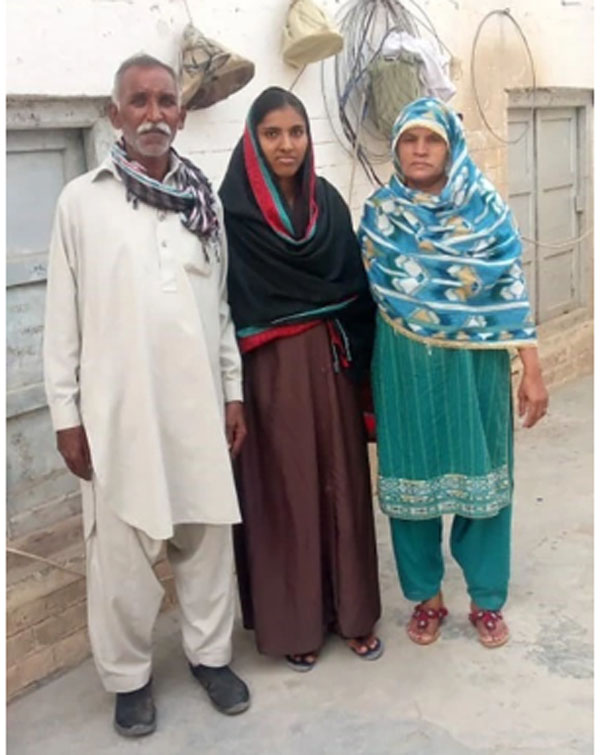
Pakistan — Javed Masih heaved a sigh of relief last week when he saw his 18-year-old daughter for the first time since she went missing for five months in Pakistan and was forcibly converted and married to an elderly Muslim man.
Sana Javed, 18, the youngest of seven children, had gone to a nearby shop in Lahore, Punjab Province on June 9 but never returned home.
“Our frantic search for her ended in mid-October, when I received a phone call from a Christian in Balochistan Province who informed me about her whereabouts,” said Masih, a Catholic truck driver. He would not see her again until Nov. 14.
Masih said that a Muslim woman identified only as Hafsa had befriended his daughter on WhatsApp a few days before she disappeared.
“Sana told us that the girl emotionally blackmailed and forced her to meet in person without her family’s knowledge,” Masih told Christian Daily International-Morning Star News. “She even sent her money and directed her to board a bus to Dera Ismail Khan, a city in Khyber Pakhtunkhwa Province. From there, Sana boarded another bus to cross into a remote village in Balochistan Province.”
When Sana Javed reached Hafsa’s house, she was immediately deprived of her phone and held hostage, he said.
A cleric was called, and Sana was forced to recite the Kalima [proclamation of conversion to Islam] and marry an elderly Muslim man under threats of violence,” he said. “She later found out that he was a maternal uncle of Hafsa.”
Three days after filing a report with police the same day of her disappearance, the family discovered officers had misplaced it, he said. Masih filed a new report and police registered a First Information Report (FIR), but officers made no effort to find her, he said.
“He would instead ask us to provide leads for the investigation, when in fact we neither had the information nor the resources,” Masih said.
Putting their trust in God, family members began asking others to pray along with them for her return, he said. They began visiting various pastors and churches for prayer support, and finally their prayers were answered when Masih received a call from a Christian schoolteacher in Balochistan Province identified only as Waseem. The teacher told him his daughter was in his village, and that a local politician had contacted him to help find her family.
The Muslim politician had received information from a female family member about her, Waseem told Masih.
“I do not know the man’s name, but God used him to rescue our daughter from captivity,” Masih said of the Muslim politician. “When I informed the police about my daughter’s location and sought their help, they told me that they would need official permission and resources to travel to another province. I contacted a Christian paralegal group for help, and I’m grateful that they provided us with legal and financial support to help bring Sana back to Lahore.”
A legal team from Christians’ True Spirit (CTS) accompanied police and the family to the village in Balochistan, where they recovered Sana Javed on Nov. 14, he said.
“I cannot express my gratitude for the Baloch political leader and Waseem, the schoolteacher, who not only helped us in rescuing Sana but also forced her ‘husband’ to sign an affidavit of divorce,” Masih told Christian Daily International-Morning Star News. “The Muslim [political] leader also used his influence to ensure the security of the visiting team who otherwise could have faced resistance from the hostile villagers.”
Sana Javed said she hoped others would learn from her ordeal to be cautious about befriending others on social media.
“I’m unable to explain how she managed to influence me to make this huge mistake of leaving my home,” Sana Javed told Christian Daily International-Morning Star News. “I was forced to convert to Islam and put my thumb impression on the marriage certificate. They said they would kill me if I did not obey their order.”
Prayers kept her hope of returning home alive, she said, adding that despite her circumstances, she found solace in hymns and some biblical verses that she had memorized in church.
“There were times when I would slip into depression, but then I would recite Psalms and verses, and it helped in uplifting my spirit,” she said.
The U.N.’s Human Rights Committee on Nov. 7 expressed concern about persistent reports of abduction and forced marriages of girls from minority religions, regardless of their age and prevailing law. Forced to convert to Islam under threat of violence, they suffer rape, trafficking and other forms of sexual and gender-based violence.
The U.N. body expressed concern about reports of the widespread impunity surrounding these cases.
“Victims are usually not returned to their families during investigations but forced to stay with their abductors, including members of organized criminal groups, or placed in unnecessary and inappropriate alternative care facilities, with no or limited regard for child protection standards, exposing victims to further risk of exploitation, abuse and harmful practices,” the committee stated in its concluding observations on Pakistan’s second periodic review of human rights situation earlier this month.
It urged Pakistan to intensify efforts to eradicate forced conversions and marriages, including strengthening its legal framework and enforcement mechanisms.
“The state party should also ensure that all allegations of forced conversions and forced marriages of girls are promptly, impartially and effectively investigated, that those responsible are brought to justice, and that all victims have access to effective remedies and support services such as adequate shelters, legal aid, psychological counselling and rehabilitation programs,” it stated.
Pakistan ranked seventh on Open Doors’ 2024 World Watch List of the most difficult places to be a Christian, as it was the previous year.
Sources:Christian Post
world news
പാക്ക് പീഡിത ക്രൈസ്തവര്ക്ക് വേണ്ടി സ്വരമുയര്ത്തുന്ന യുവതിക്ക് എസിഎന്നിന്റെ ധീരത അവാര്ഡ്
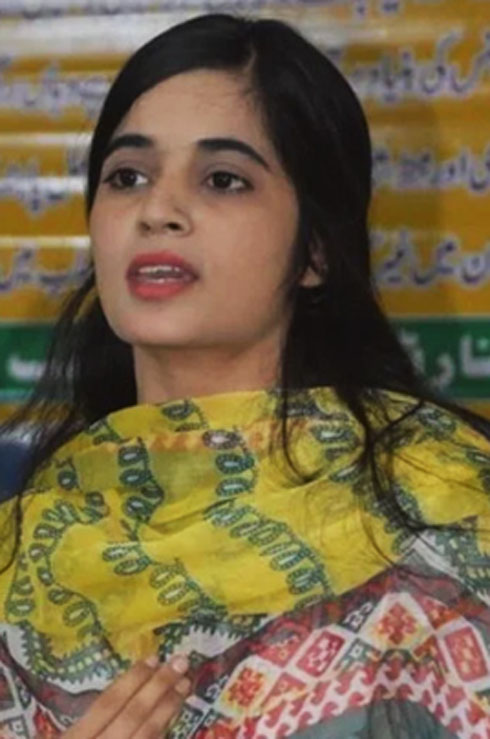
ലാഹോര്/ ലണ്ടന്: കൊടിയ മതപീഡനത്തിനും വിവേചനത്തിനും ഇരയായി ദുരിതങ്ങളിലൂടെ കടന്നുപോകുന്ന പാക്കിസ്ഥാനിലെ ക്രൈസ്തവര്ക്ക് വേണ്ടി ധീരതയോടെ പോരാടുന്ന യുവതിയ്ക്കു എസിഎന്നിന്റെ ധീരത അവാര്ഡ്. കത്തോലിക്ക സന്നദ്ധ സംഘടനയായ എയിഡ് ടു ദ ചര്ച്ച് ഇന് നീഡ് (എസിഎന്) ഏര്പ്പെടുത്തിയ അവാര്ഡിന് റിബ്ക നെവാഷ് എന്ന യുവതിയാണ് അര്ഹയായിരിക്കുന്നത്.
ക്രൈസ്തവ സ്ത്രീകൾക്കും പെൺകുട്ടികൾക്കും നീതി ലഭിക്കുന്നതിനു വേണ്ടി ശബ്ദമുയർത്തുന്നതിൽ അസാമാന്യ തീക്ഷ്ണത കാണിക്കുകയും ക്രൈസ്തവരോടുള്ള അനീതിയ്ക്കെതിരെ ശക്തമായി പോരാടുകയും ചെയ്യുന്ന റിബ്കയുടെ ധീരതയാര്ന്ന നിലപാട് കണക്കിലെടുത്താണ് ‘കറേജ് ടു ബി ക്രിസ്ത്യൻ അവാര്ഡ്’ നല്കുന്നതെന്ന് എസിഎന് വ്യക്തമാക്കി.
24 വയസ്സു മാത്രം പ്രായമുള്ള നെവാഷ് പാക്കിസ്ഥാനിലെ ക്രൈസ്തവ സ്ത്രീകളുടേയും പെൺകുട്ടികളുടേയും ദയനീയാവസ്ഥയെക്കുറിച്ച് തുറന്നുപറയുകയും തട്ടിക്കൊണ്ടുപോയി ഇസ്ലാം മതത്തിലേക്ക് പരിവർത്തനം ചെയ്യുന്ന അനീതിയ്ക്കെതിരെ ശക്തമായി സ്വരമുയര്ത്തുകയും ചെയ്തിരിന്നു. അക്രമാസക്തമായ പീഡനങ്ങളെ അതിജീവിച്ചവരെ സമൂഹത്തിലേക്ക് മടക്കിക്കൊണ്ടുവരുവാനും അവരുടെ ശബ്ദമായി മാറാനും ഈ യുവതി തന്റെ യൗവനം മാറ്റിയിരിക്കുകയാണ്. 2023 ഓഗസ്റ്റിൽ പാക്കിസ്ഥാനിലെ പഞ്ചാബ് പ്രവിശ്യയിലെ ജരന്വാലയില് അരങ്ങേറിയ ക്രൈസ്തവ വിരുദ്ധ കലാപത്തില് സര്വ്വതും നഷ്ട്ടപ്പെട്ട ക്രൈസ്തവര്ക്കു നീതി ലഭിക്കണമെന്ന് ആവശ്യപ്പെട്ട് നിരവധി പത്രസമ്മേളനങ്ങളിൽ അവർ പങ്കെടുത്തിട്ടുണ്ട്.
പാകിസ്ഥാനിലെ പീഡിത സഭയ്ക്കുവേണ്ടി വാദിക്കുന്ന അസാധാരണമായ ശക്തിയും ധൈര്യവും നിശ്ചയദാർഢ്യവും പരിഗണിച്ച് റിബ്ഖയ്ക്ക് അവാര്ഡ് നല്കുന്നതില് ഏറെ സന്തോഷമുണ്ടെന്ന് എസിഎന് യുകെയിലെ ദേശീയ ഡയറക്ടർ ഡോ. കരോലിൻ ഹൾ പറഞ്ഞു. 2024-ലെ ക്രിസ്ത്യൻ അവാർഡിന് തിരഞ്ഞെടുക്കപ്പെട്ടതിൽ ബഹുമാനവും നന്ദിയും അറിയിക്കുന്നുവെന്നും പീഡിത ക്രൈസ്തവരെ സഹായിക്കാൻ തന്നാൽ കഴിയുന്നതെല്ലാം ചെയ്യുമെന്നും റിബ്ക നെവാഷ് പ്രതികരിച്ചു. പീഡിപ്പിക്കപ്പെടുന്ന ക്രൈസ്തവരെ പ്രത്യേകം അനുസ്മരിക്കുന്ന റെഡ് വെനസ്ഡേ ആചരണത്തിന്റെ ഭാഗമായി ഇന്നലെ ലണ്ടനിലെ ബ്രോംപ്ടൺ ഓറട്ടറിയിൽവച്ച് റിബ്ക നെവാഷിന് അവാർഡ് സമ്മാനിച്ചു.
കടപ്പാട് :പ്രവാചക ശബ്ദം
world news
ദുബൈയില് ടൂറിസ്റ്റ്, സന്ദര്ശന വിസകള്ക്ക് ഹോട്ടല് ബുക്കിങ്ങും റിട്ടേണ് ടിക്കറ്റും നിര്ബന്ധമെന്ന് ദുബൈ എമിഗ്രേഷന്

ദുബൈ: എമിറേറ്റിലേക്ക് ടൂറിസ്റ്റ് വിസയും സന്ദര്ശന വിസയും ലഭിക്കാന് ഇനി മുതല് ഹോട്ടലില് റൂം ബുക്ക്ചെയ്തതിന്റെ രേഖയും റിട്ടേണ് ടിക്കറ്റും നിര്ബന്ധമാക്കിയതായി ദുബൈ എമിഗ്രേഷന് അറിയിച്ചു. വിസക്കായി അപേക്ഷിക്കുമ്പോള് ക്യൂആര് കോഡുള്ള ഹോട്ടല് ബുക്കിങ്ങിന്റെ രേഖയും തിരിച്ചുപോകാനുള്ള വിമാന ടിക്കറ്റിന്റെ പകര്പ്പും സമര്പ്പിക്കണമെന്നാണ് ദുബൈ എമിഗ്രേഷന് ട്രാവല് ഏജന്സികള്ക്ക് ഇത് സംബന്ധിച്ച് നിര്ദേശം നല്കിയിരിക്കുന്നത്.
ഒരു മാസത്തെ വിസക്കായി അപേക്ഷിക്കുന്നവരുടെ ക്രെഡിറ്റ്/ഡെബിറ്റ് കാര്ഡുകളില് 3,000 ദിര്ഹത്തിന് സമാനമായ തുകയും രണ്ടു മാസത്തെ വിസക്ക് അപേക്ഷിക്കുന്നവരുടെ കാര്ഡില് 5,000 ദിര്ഹത്തിന് തുല്യമായ തുകയും ഉണ്ടായിരിക്കണം. അതേ സമയം യുഎഇയില്കഴിയുന്ന വ്യക്തി സ്വന്തം കുടുംബത്തിനായി സന്ദര്ശക വിസക്ക് അപേക്ഷിക്കുമ്പോള് ഹോട്ടല് ബുക്കിങ്ങും റിട്ടേണ് ടിക്കറ്റും സമര്പ്പിക്കേണ്ടതുണ്ടോയെന്ന കാര്യത്തില് വ്യക്തതവരേണ്ടതുണ്ട്.
ടൂറിസ്റ്റ് വിസക്കായി രാവിലെ അപേക്ഷിക്കാന് ശ്രമിച്ചപ്പോള് റിട്ടേണ് ടിക്കറ്റ് രേഖകള് അപ്ലോഡ് ചെയ്യാന് എമിഗ്രേഷന് സൈറ്റില് ആവശ്യപ്പെട്ടതായി ദുബൈയിലെ വിവിധ ട്രാവല് ഏജന്സികളില് പ്രവര്ത്തിക്കുന്നവര് വ്യക്തമാക്കി. രേഖകള് സമര്പ്പിക്കാത്ത ഒട്ടേറെ വിസാ അപേക്ഷകള് പ്രോസസിങ് പൂര്ത്തിയാവാതെ കിടക്കുന്ന സ്ഥിതിയാണെന്നും ഇവര് പറയുന്നു.
Sources:Metro Journal
-

 Travel6 months ago
Travel6 months agoയാക്കൂസ കരിഷ്മ:ഓല സ്കൂട്ടറിനേക്കാൾ വിലക്കുറവിൽ കുഞ്ഞൻ കാർ; സിറ്റി യാത്രകൾക്ക് ഇനി ഇവൻ മതിയാവും
-

 Tech4 months ago
Tech4 months agoചിത്രങ്ങൾ എഡിറ്റ് ചെയ്യാം; വാട്സ്ആപ്പിലെ ‘നീല വളയം’ സ്മാർട്ടാകുന്നു, കാര്യമായ മാറ്റങ്ങൾ
-

 National9 months ago
National9 months agoനെയ്തേലിപ്പടി ക്രൂസേഡിന് അനുഗ്രഹീത സമാപ്തി
-

 Movie8 months ago
Movie8 months agoActor Ryan Phillippe ‘Craving’ Relationship With God After Movie About Christian Missionary
-
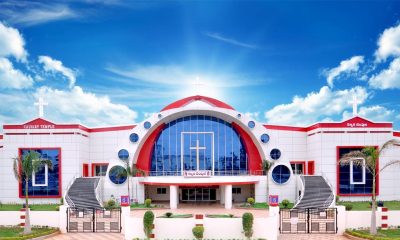
 National9 months ago
National9 months ago300,000-Member Indian Church to Plant 40 More Megachurches
-

 Movie11 months ago
Movie11 months agoBrazilian gospel singer Pedro Henrique dies of heart attack after collapsing on stage
-

 Articles5 months ago
Articles5 months ago8 ways the Kingdom connects us back to the Garden of Eden
-

 Hot News8 months ago
Hot News8 months ago3 key evidences of Jesus’ return from the grave



